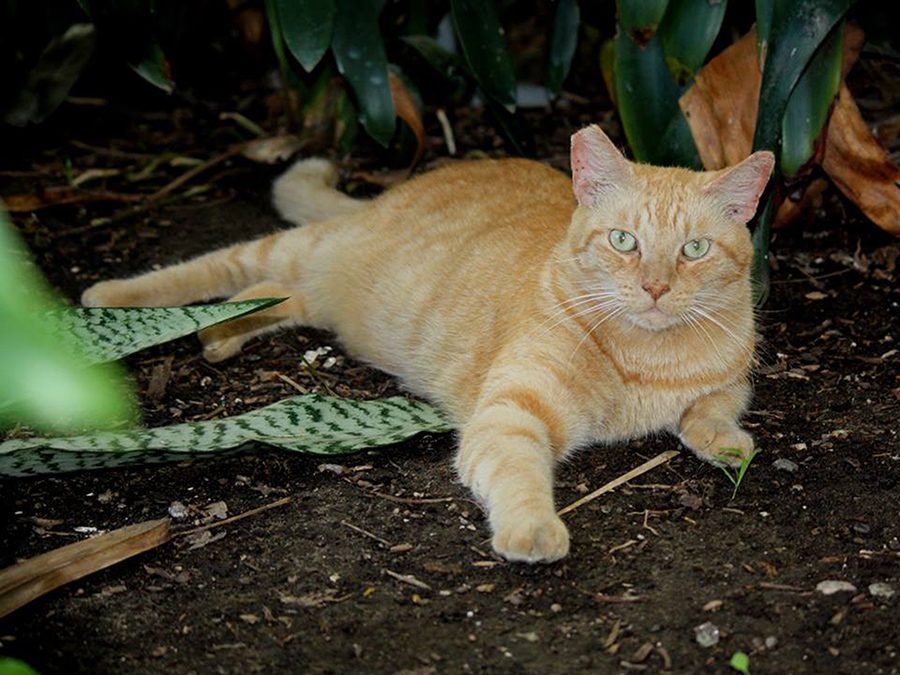They’re not always noticeable. But if students look closely, they’ll find there are a handful of feral cats roaming around campus.
These animals are known as the Aztec Cats — they’re cared for by some faculty and staff volunteers and they even have their own Facebook page.
John Denune, a now-retired SDSU technology security officer, said he first noticed the cats in 2009, when he saw a mother and her kittens near a dumpster behind East Commons.
Denune took the matter into his own hands and began thinking of ways of caring for them.
Eight years later, there are now a total of five staff members who take time out of their day to help feed the animals.
He decided to see what he could do to give them a better life.
“First, I brought them food,” Denune said. “Feral cats have been roaming around SDSU for some time, and it is relatively safe in that they don’t have to worry about wild animals like coyotes coming after them.”
Denune said over the years, he would catch any wild cats roaming around campus and have them spayed or neutered.
“These wild cats don’t want to be captured, so I have to be careful not to get bitten when capturing them,” he said. “After capturing them, I would nurture them, get them vaccinated, then I would release them back on campus.”
Denune said that the population of cats has grown on campus over the years, but many have left or have been adopted. But the five original cats — two 7-year-old males and three 8-year-old females — still remain.
Nance Lakdawala, executive assistant to SDSU’s vice president for business and financial affairs, said she likes to help out Denune in feeding the cats.
“All of us take turns in feeding the cats once in the morning,” Lakdawala said. “We feed them by the Physics Building, Mediterranean garden, Communications Building and Hepner Hall.”
Sheryl Necochea, an SDSU enterprise technology services resources manager, is another one of the five staff members who help Denune with cats.
Necochea said Denune usually pays for the cats’ care.
“Other than occasional donated cans or bags of food from the staff members that help, John pays for their food and vet care,” she said. “They are neutered for free from the Feral Cat Coalition.”
Necochea said the end goal is to have no more cats on campus.
“We do love cats, we just don’t want them to over-populate here on campus,” she said. “For the original cats, John is taking them home to try to acclimate them to a home environment to see if they can be adoptable.”







